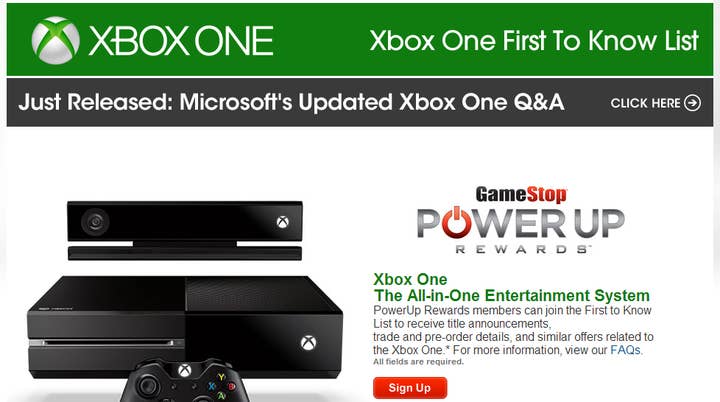Analysts say it's "unlikely" that publishers will block used games
Pachter believes publishers could face significant backlash for using their new power
With yesterday's announcement of the Xbox One's game licensing capabilities, we now know that Microsoft has given publishers the power to block second-hand sales of games if they chose. Despite the looming threat of this option, Wedbush Securities analyst Michael Pachter and Baird Research senior analyst Colin Sebastian both believe that publishers won't jump at the chance.
"In our view, it is still unlikely that publishers will block used games; however, they may try to extract a retail fee," said Sebastian in a note this morning.
"We expect the majority of the large publishers to enable used gaming, at least in the early years of the Xbox One launch. In our view, any publisher that disables used gaming risks a backlash or boycott of its titles by gamers, negatively impacting sales," said Pachter in his release.
Pachter explained that publishers who did block used games would be leaving themselves open to lose customers to competitors who allowed second-hand sales and trades. Instead, he expects that publishers will lock used game trades for a certain period of time near launch.
"We continue to believe that the currency generated from used game trade-ins is beneficial for the publishers, as it provides currency available for new game purchases. However, many believe that used games sold in proximity to a new game's release cannibalizes sales of the new title, so we think that some publishers may limit used game trade-ins for a specified period of time following the game's launch," he said. "We expect used gaming to continue to be widespread, to the benefit of GameStop."
The analysts believe the announcement was a mixed bag for GameStop. While a possible block on used games would affect the company, the revelation that all titles would be available for digital distribution on launch day could be a blow to the retail giant's new sales.
"Overall, the announcements were mixed for GameStop, alleviating some concerns over used game restrictions, but raising others around publisher discretion over game access," said Sebastian. "At first glance, we would not be surprised if publishers use the opportunity to ask for a revenue share, although we see it as unlikely that GameStop would agree to any meaningful fees given business model constraints and outsized market share."
"We note that the model of simultaneous availability of a game on a disc and digitally is not new and has been offered for many games in recent years. In fact, we expect full game downloads to represent potentially as much as 20 to 25 percent of new game software sales (up from less than 5 percent today) in the upcoming console cycle," said Sterne Agee analyst Arvind Bhatia.
"Games will be made available via digital distribution through Xbox Live on the day of release of the packaged product," said Pachter. "We believe that this disclosure has the greatest potential to negatively impact GameStop's business, as GameStop is unlikely to participate directly in these digital sales; however, we believe it is in the best interests of Microsoft and the publishers to integrate GameStop's PowerUp Rewards currency into digital transactions in some manner."
Pachter theorizes that Microsoft could either allow digital game sales from its DLC kiosks in-store, or integrate GameStop's PowerUp rewards with Xbox Live.
"In the first scenario, GameStop's DLC kiosks could be used by Microsoft and the publishers to garner significant interest in upcoming and already available titles, maximizing pre-orders and in-store sales. In the second scenario, the amount of currency available to make purchases on Xbox Live would increase dramatically, and all parties would benefit from increased online spending," he added.
Pachter believes GameStop stock will outperform and has forecasted a 12-month price target of $49 per share. Sebastian also gave GameStop an 'outperform' rating, but offered up a more conservative price target of $38. Bhatia attached a 'buy' rating to GameStop, with a price target of $46. The company's stock is $37.14 as of this writing.
"While the company's long-term position remains under scrutiny given the inevitable shift of media consumption online, we believe the company should benefit from a high-quality lineup of core game coinciding with the next-generation console cycle, and potential positive comp store sales in late 2013," Sebastian said.

